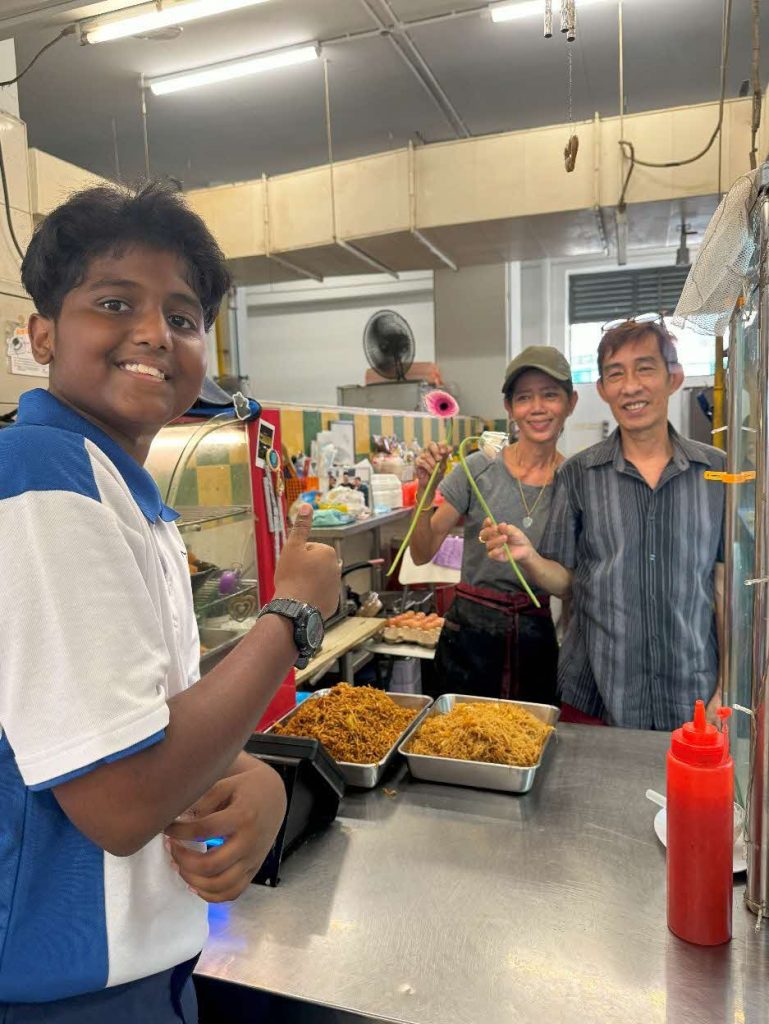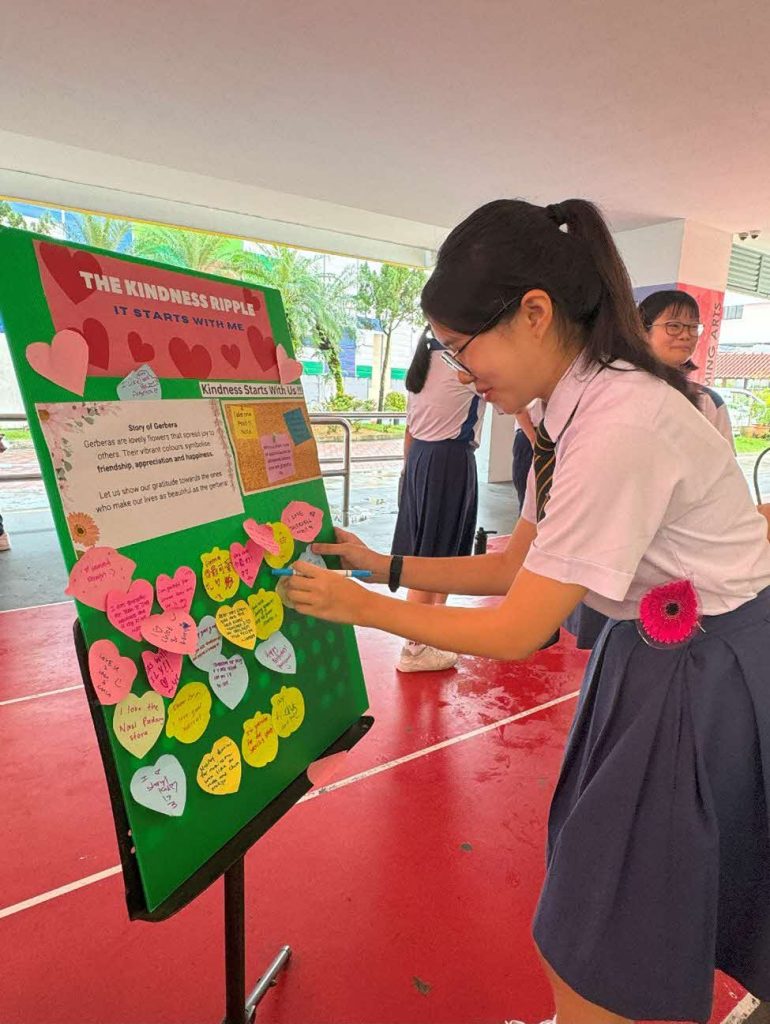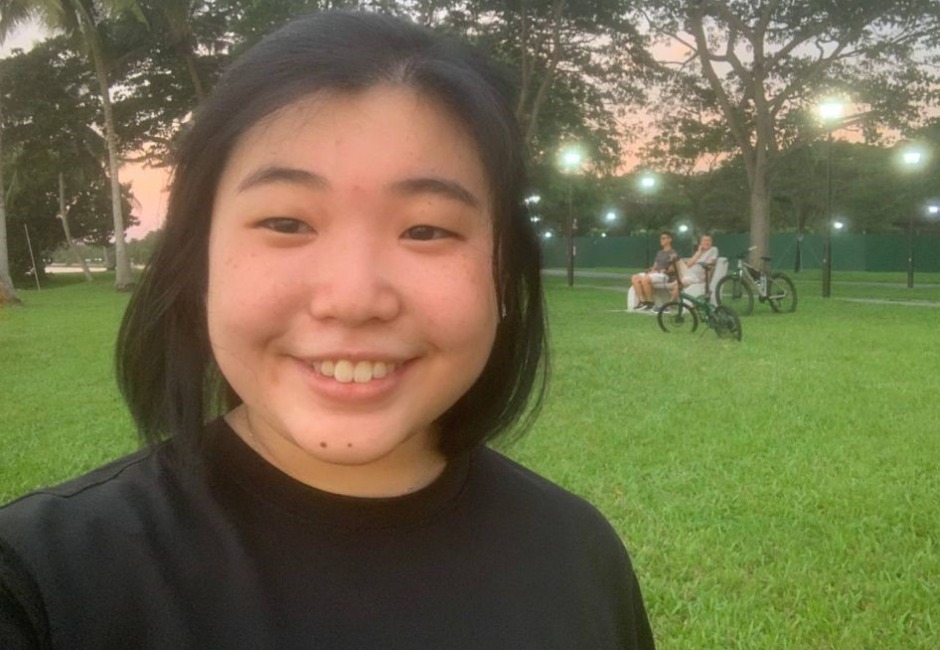Muthumanickam Meyyappan first sensed that something was wrong with one of his schoolmates when he became unusually quiet. “There were a lot of behavioural changes – he wasn’t talking as much to me and was always staying in class during recess,” recalls the Secondary 4 student from Presbyterian High School.
Concerned, Muthumanickam approached his friend to find out what was happening. When his friend finally opened up about the family troubles and worries weighing him down, Muthumanickam listened intently. However, instead of offering advice, the teenager did what some might have found difficult: he told a trusted adult – a teacher, in this case – about the situation.
“Any advice I give him might not be helpful, and could even direct him in the wrong direction,” he reflects.
That decision wasn’t easy; his friend was upset with him at first. But the teenager had learnt through his training as a Peer Support Leader (PSL) that the best way to help a friend in need involves seeking the right support – even if it means risking a friendship.
“As a PSL, you need to tell the teachers (about the red flags), even if that person is your best or closest friend. That’s because you’re caring for their future, their health. Even if it means breaking our friendship, I don’t mind doing it just to get help for my friend,” he explains.
A few days later, his friend came to understand the difficult choice that Muthumanickam had made and even thanked him for it.
Using the right tools to support peers
Muthumanickam’s experience is a common scenario that PSLs may encounter as they go about supporting their peers. Striking a balance isn’t always easy, but it is crucial in ensuring that their peers receive the help they need.
Presbyterian High School introduced the PSL role in 2021 as part of the class committee. The goal was to provide students with more opportunities to promote student well-being and foster a caring and inclusive culture in the school, says Mr Toh Wei Seng, Assistant Year Head.
There are currently 58 PSLs in the school, two per class, all of whom have undergone training to prepare them for challenging situations. PSLs are part of a broader support system available to students to support mental well-being in school.
At Presbyterian High School, PSL training is conducted by teachers and professionals such as mediators, who develop the students through case studies and role-playing exercises designed to guide them to support peers with care and empathy.
For example, the students were introduced to the concept of automatic negative thoughts (ANTs) and taught to recognise them. They also learnt to reflect on the impact on emotions and behaviours, and how to manage their emotions and behaviour to strengthen resilience. The training also emphasised the importance of escalating potentially serious issues to teachers, in order to get their peers the right help.
Chang Ying-Chen, a fellow Secondary 4 PSL, shares that the training included active listening and conflict management techniques, which taught her how to let peers feel heard and understood.
“One useful skill that I learned being a PSL is to rephrase what someone has said to you. That’s one of the methods we can use to help people feel heard and that we are genuinely rooting for them,” she says. These skills not only enable Ying-Chen to support her peers but has also made her more adept at teamwork, especially during group projects.
Growing a support network beyond the classroom
Mr Toh shares that the skills that PSLs acquire do not stay within the confines of the classroom; the skills they learn during training carry over into their CCAs as well. “It’s not just confined to the class. All these students are seeds that we plant, who will help grow this network of support for their peers,” he says.
For instance, Muthumanickam applies the patience and empathy he has honed as a PSL when working with his teammates in his Football CCA. He can also better understand their perspectives and help mediate any differences or difficulties they are facing.
“The most important value I gained as a PSL is patience – being patient enough to listen to my teammates,” he says. “As a defender, I used to get red and yellow cards due to my impatience. Now, I have more patience in handling situations instead of pushing myself and forcing things to happen.”
The PSLs also contribute to school-wide events aimed at fostering kindness and overall well-being in school. During Kindness Week, which was held in Term 2, Muthumanickam, Ying-Chen and their fellow PSLs handed out flowers in the canteen to brighten up everyone’s day. “People who received these flowers could also give them to someone else to keep the circle of kindness going,” Ying-Chen shares.

Muthumanickam adds that the acts of kindness lightened up the mood in school. “Some PSLs also gave flowers to the teachers, so in a way, we act like teacher support too. During the exam period, I think teachers may be even more stressed than some students,” he quips.
Another PSL-led initiative that spreads kindness and strengthen ties in school is the Angel and Mortal Game held during Kindness Week – which is designed to encourage students to practise kindness towards themselves and the community. Students are assigned a “mortal” to whom they act as an “angel”. The Angel will secretly give their Mortal notes of encouragement without being discovered. “Receiving a note or letter of encouragement really brightens your day and gives you that extra boost, especially during the stressful exam period,” Ying-Chen says.

Close relationships matter
As they pour their hearts into supporting their peers, who do PSLs turn to if they need support? For Ying-Chen and Muthumanickam, their dedication as PSLs comes not only from the training they have received, but also from the love and support they find in school and at home.
“If I still need help, I can go to my parents and my teachers, because I know that they are always there for me.”
Chang Ying-Chen, Secondary 4 Peer Support Leader at Presbyterian High School.
Mr Toh shares that in addition to their scheduled termly training and facilitation sessions, he regularly checks in with the PSLs to monitor their well-being and identify ways to support them further. “The PSLs can also approach their teachers or school staff if they require support. Form Teachers also regularly check in with students to see how they’re doing,” he adds.
Ying-Chen shares that her close friends are a vital part of her support system. Whenever the pressures of homework and school become overwhelming, they are her “first line of defence”. “If I still need help, I can go to my parents and my teachers, because I know that they are always there for me,” she says.
As for Muthumanickam, he applies the practices that he uses as a PSL whenever he feels down. He takes a moment to reflect on why he is feeling sad or worried, asking himself the same questions he might ask a friend in need.
Knowing that he has supportive family and friends also helps him navigate stressful situations – a reminder that the bonds we form with the people around us can shine a light through difficult times.
“I have a close relationship with my parents and siblings – I can turn to them for support. My close friends will also notice and offer support when something is bothering me, just as I can sense when they’re feeling down,” he says.






